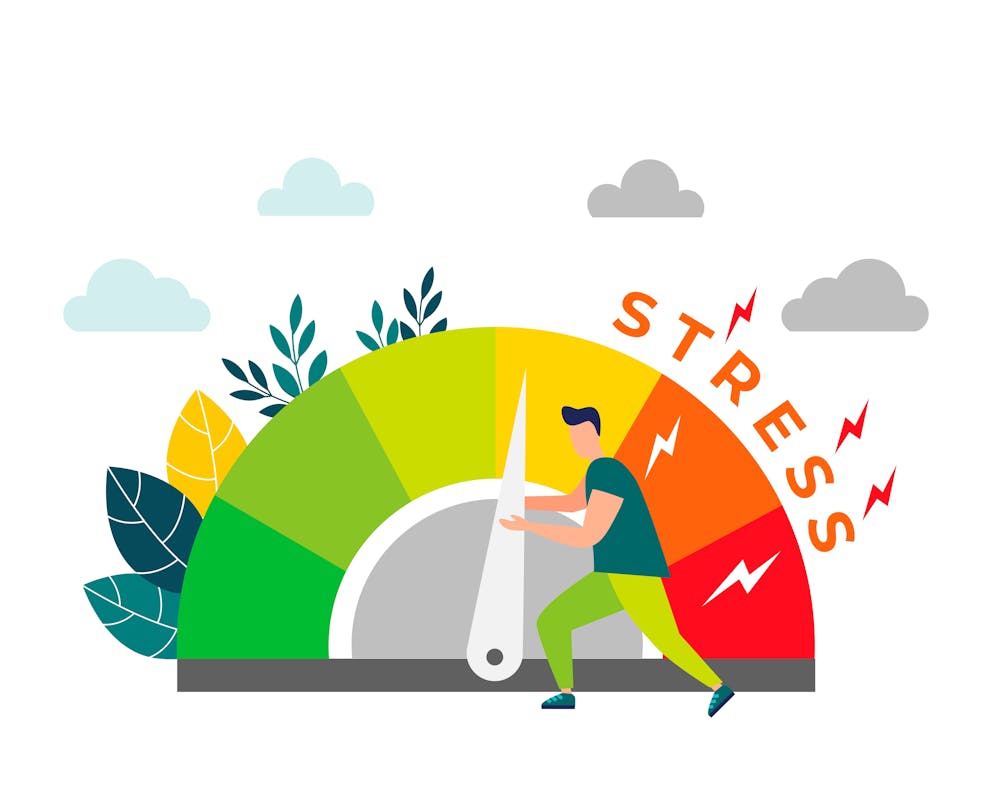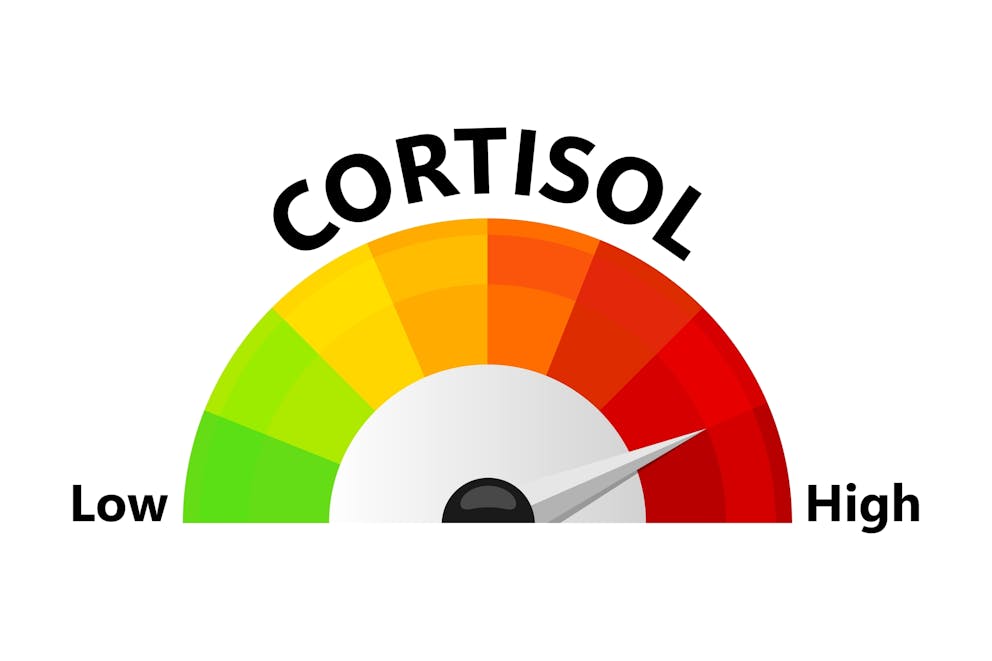How to Lower Cortisol Naturally and Relieve Stress

25 Natural Ways to Lower Cortisol
Explore natural methods to reduce cortisol levels
Learn about lifestyle changes, dietary strategies, and relaxation techniques to manage stress
Discover how to balance stress hormones for better health and well-being
Get practical advice for integrating evidence-based stress-reduction practices into your daily life

25 Natural Ways to Lower Cortisol
Explore natural methods to reduce cortisol levels
Learn about lifestyle changes, dietary strategies, and relaxation techniques to manage stress
Discover how to balance stress hormones for better health and well-being
Get practical advice for integrating evidence-based stress-reduction practices into your daily life

25 Natural Ways to Lower Cortisol
Explore natural methods to reduce cortisol levels
Learn about lifestyle changes, dietary strategies, and relaxation techniques to manage stress
Discover how to balance stress hormones for better health and well-being
Get practical advice for integrating evidence-based stress-reduction practices into your daily life

25 Natural Ways to Lower Cortisol
Explore natural methods to reduce cortisol levels
Learn about lifestyle changes, dietary strategies, and relaxation techniques to manage stress
Discover how to balance stress hormones for better health and well-being
Get practical advice for integrating evidence-based stress-reduction practices into your daily life

25 Natural Ways to Lower Cortisol
Explore natural methods to reduce cortisol levels
Learn about lifestyle changes, dietary strategies, and relaxation techniques to manage stress
Discover how to balance stress hormones for better health and well-being
Get practical advice for integrating evidence-based stress-reduction practices into your daily life

25 Natural Ways to Lower Cortisol
Explore natural methods to reduce cortisol levels
Learn about lifestyle changes, dietary strategies, and relaxation techniques to manage stress
Discover how to balance stress hormones for better health and well-being
Get practical advice for integrating evidence-based stress-reduction practices into your daily life

25 Natural Ways to Lower Cortisol
Explore natural methods to reduce cortisol levels
Learn about lifestyle changes, dietary strategies, and relaxation techniques to manage stress
Discover how to balance stress hormones for better health and well-being
Get practical advice for integrating evidence-based stress-reduction practices into your daily life

25 Natural Ways to Lower Cortisol
Explore natural methods to reduce cortisol levels
Learn about lifestyle changes, dietary strategies, and relaxation techniques to manage stress
Discover how to balance stress hormones for better health and well-being
Get practical advice for integrating evidence-based stress-reduction practices into your daily life

25 Natural Ways to Lower Cortisol
Explore natural methods to reduce cortisol levels
Learn about lifestyle changes, dietary strategies, and relaxation techniques to manage stress
Discover how to balance stress hormones for better health and well-being
Get practical advice for integrating evidence-based stress-reduction practices into your daily life

25 Natural Ways to Lower Cortisol
Explore natural methods to reduce cortisol levels
Learn about lifestyle changes, dietary strategies, and relaxation techniques to manage stress
Discover how to balance stress hormones for better health and well-being
Get practical advice for integrating evidence-based stress-reduction practices into your daily life

25 Natural Ways to Lower Cortisol
Explore natural methods to reduce cortisol levels
Learn about lifestyle changes, dietary strategies, and relaxation techniques to manage stress
Discover how to balance stress hormones for better health and well-being
Get practical advice for integrating evidence-based stress-reduction practices into your daily life

25 Natural Ways to Lower Cortisol
Explore natural methods to reduce cortisol levels
Learn about lifestyle changes, dietary strategies, and relaxation techniques to manage stress
Discover how to balance stress hormones for better health and well-being
Get practical advice for integrating evidence-based stress-reduction practices into your daily life

25 Natural Ways to Lower Cortisol
Explore natural methods to reduce cortisol levels
Learn about lifestyle changes, dietary strategies, and relaxation techniques to manage stress
Discover how to balance stress hormones for better health and well-being
Get practical advice for integrating evidence-based stress-reduction practices into your daily life

25 Natural Ways to Lower Cortisol
Explore natural methods to reduce cortisol levels
Learn about lifestyle changes, dietary strategies, and relaxation techniques to manage stress
Discover how to balance stress hormones for better health and well-being
Get practical advice for integrating evidence-based stress-reduction practices into your daily life

25 Natural Ways to Lower Cortisol
Explore natural methods to reduce cortisol levels
Learn about lifestyle changes, dietary strategies, and relaxation techniques to manage stress
Discover how to balance stress hormones for better health and well-being
Get practical advice for integrating evidence-based stress-reduction practices into your daily life

25 Natural Ways to Lower Cortisol
Explore natural methods to reduce cortisol levels
Learn about lifestyle changes, dietary strategies, and relaxation techniques to manage stress
Discover how to balance stress hormones for better health and well-being
Get practical advice for integrating evidence-based stress-reduction practices into your daily life

25 Natural Ways to Lower Cortisol
Explore natural methods to reduce cortisol levels
Learn about lifestyle changes, dietary strategies, and relaxation techniques to manage stress
Discover how to balance stress hormones for better health and well-being
Get practical advice for integrating evidence-based stress-reduction practices into your daily life

25 Natural Ways to Lower Cortisol
Explore natural methods to reduce cortisol levels
Learn about lifestyle changes, dietary strategies, and relaxation techniques to manage stress
Discover how to balance stress hormones for better health and well-being
Get practical advice for integrating evidence-based stress-reduction practices into your daily life

25 Natural Ways to Lower Cortisol
Explore natural methods to reduce cortisol levels
Learn about lifestyle changes, dietary strategies, and relaxation techniques to manage stress
Discover how to balance stress hormones for better health and well-being
Get practical advice for integrating evidence-based stress-reduction practices into your daily life

25 Natural Ways to Lower Cortisol
Explore natural methods to reduce cortisol levels
Learn about lifestyle changes, dietary strategies, and relaxation techniques to manage stress
Discover how to balance stress hormones for better health and well-being
Get practical advice for integrating evidence-based stress-reduction practices into your daily life

25 Natural Ways to Lower Cortisol
Explore natural methods to reduce cortisol levels
Learn about lifestyle changes, dietary strategies, and relaxation techniques to manage stress
Discover how to balance stress hormones for better health and well-being
Get practical advice for integrating evidence-based stress-reduction practices into your daily life

25 Natural Ways to Lower Cortisol
Explore natural methods to reduce cortisol levels
Learn about lifestyle changes, dietary strategies, and relaxation techniques to manage stress
Discover how to balance stress hormones for better health and well-being
Get practical advice for integrating evidence-based stress-reduction practices into your daily life

25 Natural Ways to Lower Cortisol
Explore natural methods to reduce cortisol levels
Learn about lifestyle changes, dietary strategies, and relaxation techniques to manage stress
Discover how to balance stress hormones for better health and well-being
Get practical advice for integrating evidence-based stress-reduction practices into your daily life

25 Natural Ways to Lower Cortisol
Explore natural methods to reduce cortisol levels
Learn about lifestyle changes, dietary strategies, and relaxation techniques to manage stress
Discover how to balance stress hormones for better health and well-being
Get practical advice for integrating evidence-based stress-reduction practices into your daily life

25 Natural Ways to Lower Cortisol
Explore natural methods to reduce cortisol levels
Learn about lifestyle changes, dietary strategies, and relaxation techniques to manage stress
Discover how to balance stress hormones for better health and well-being
Get practical advice for integrating evidence-based stress-reduction practices into your daily life

25 Natural Ways to Lower Cortisol
Explore natural methods to reduce cortisol levels
Learn about lifestyle changes, dietary strategies, and relaxation techniques to manage stress
Discover how to balance stress hormones for better health and well-being
Get practical advice for integrating evidence-based stress-reduction practices into your daily life

25 Natural Ways to Lower Cortisol
Explore natural methods to reduce cortisol levels
Learn about lifestyle changes, dietary strategies, and relaxation techniques to manage stress
Discover how to balance stress hormones for better health and well-being
Get practical advice for integrating evidence-based stress-reduction practices into your daily life

25 Natural Ways to Lower Cortisol
Explore natural methods to reduce cortisol levels
Learn about lifestyle changes, dietary strategies, and relaxation techniques to manage stress
Discover how to balance stress hormones for better health and well-being
Get practical advice for integrating evidence-based stress-reduction practices into your daily life

25 Natural Ways to Lower Cortisol
Explore natural methods to reduce cortisol levels
Learn about lifestyle changes, dietary strategies, and relaxation techniques to manage stress
Discover how to balance stress hormones for better health and well-being
Get practical advice for integrating evidence-based stress-reduction practices into your daily life

25 Natural Ways to Lower Cortisol
Explore natural methods to reduce cortisol levels
Learn about lifestyle changes, dietary strategies, and relaxation techniques to manage stress
Discover how to balance stress hormones for better health and well-being
Get practical advice for integrating evidence-based stress-reduction practices into your daily life

25 Top Supplements That Really Work
Discover the most effective supplements to promote a healthy body
Learn about key supplements to support digestion, brain function, energy, and more
Understand how to manage common health issues with specific supplements

25 Top Supplements That Really Work
Discover the most effective supplements to promote a healthy body
Learn about key supplements to support digestion, brain function, energy, and more
Understand how to manage common health issues with specific supplements

25 Top Supplements That Really Work
Discover the most effective supplements to promote a healthy body
Learn about key supplements to support digestion, brain function, energy, and more
Understand how to manage common health issues with specific supplements

25 Top Supplements That Really Work
Discover the most effective supplements to promote a healthy body
Learn about key supplements to support digestion, brain function, energy, and more
Understand how to manage common health issues with specific supplements

25 Top Supplements That Really Work
Discover the most effective supplements to promote a healthy body
Learn about key supplements to support digestion, brain function, energy, and more
Understand how to manage common health issues with specific supplements

25 Top Supplements That Really Work
Discover the most effective supplements to promote a healthy body
Learn about key supplements to support digestion, brain function, energy, and more
Understand how to manage common health issues with specific supplements

25 Top Supplements That Really Work
Discover the most effective supplements to promote a healthy body
Learn about key supplements to support digestion, brain function, energy, and more
Understand how to manage common health issues with specific supplements

25 Top Supplements That Really Work
Discover the most effective supplements to promote a healthy body
Learn about key supplements to support digestion, brain function, energy, and more
Understand how to manage common health issues with specific supplements

25 Top Supplements That Really Work
Discover the most effective supplements to promote a healthy body
Learn about key supplements to support digestion, brain function, energy, and more
Understand how to manage common health issues with specific supplements

25 Top Supplements That Really Work
Discover the most effective supplements to promote a healthy body
Learn about key supplements to support digestion, brain function, energy, and more
Understand how to manage common health issues with specific supplements

25 Top Supplements That Really Work
Discover the most effective supplements to promote a healthy body
Learn about key supplements to support digestion, brain function, energy, and more
Understand how to manage common health issues with specific supplements

25 Top Supplements That Really Work
Discover the most effective supplements to promote a healthy body
Learn about key supplements to support digestion, brain function, energy, and more
Understand how to manage common health issues with specific supplements

25 Top Supplements That Really Work
Discover the most effective supplements to promote a healthy body
Learn about key supplements to support digestion, brain function, energy, and more
Understand how to manage common health issues with specific supplements

25 Top Supplements That Really Work
Discover the most effective supplements to promote a healthy body
Learn about key supplements to support digestion, brain function, energy, and more
Understand how to manage common health issues with specific supplements

25 Top Supplements That Really Work
Discover the most effective supplements to promote a healthy body
Learn about key supplements to support digestion, brain function, energy, and more
Understand how to manage common health issues with specific supplements

25 Top Supplements That Really Work
Discover the most effective supplements to promote a healthy body
Learn about key supplements to support digestion, brain function, energy, and more
Understand how to manage common health issues with specific supplements

25 Top Supplements That Really Work
Discover the most effective supplements to promote a healthy body
Learn about key supplements to support digestion, brain function, energy, and more
Understand how to manage common health issues with specific supplements

25 Top Supplements That Really Work
Discover the most effective supplements to promote a healthy body
Learn about key supplements to support digestion, brain function, energy, and more
Understand how to manage common health issues with specific supplements

25 Top Supplements That Really Work
Discover the most effective supplements to promote a healthy body
Learn about key supplements to support digestion, brain function, energy, and more
Understand how to manage common health issues with specific supplements

25 Top Supplements That Really Work
Discover the most effective supplements to promote a healthy body
Learn about key supplements to support digestion, brain function, energy, and more
Understand how to manage common health issues with specific supplements

25 Top Supplements That Really Work
Discover the most effective supplements to promote a healthy body
Learn about key supplements to support digestion, brain function, energy, and more
Understand how to manage common health issues with specific supplements

25 Top Supplements That Really Work
Discover the most effective supplements to promote a healthy body
Learn about key supplements to support digestion, brain function, energy, and more
Understand how to manage common health issues with specific supplements

25 Top Supplements That Really Work
Discover the most effective supplements to promote a healthy body
Learn about key supplements to support digestion, brain function, energy, and more
Understand how to manage common health issues with specific supplements

25 Top Supplements That Really Work
Discover the most effective supplements to promote a healthy body
Learn about key supplements to support digestion, brain function, energy, and more
Understand how to manage common health issues with specific supplements

25 Top Supplements That Really Work
Discover the most effective supplements to promote a healthy body
Learn about key supplements to support digestion, brain function, energy, and more
Understand how to manage common health issues with specific supplements

25 Top Supplements That Really Work
Discover the most effective supplements to promote a healthy body
Learn about key supplements to support digestion, brain function, energy, and more
Understand how to manage common health issues with specific supplements

25 Top Supplements That Really Work
Discover the most effective supplements to promote a healthy body
Learn about key supplements to support digestion, brain function, energy, and more
Understand how to manage common health issues with specific supplements

25 Top Supplements That Really Work
Discover the most effective supplements to promote a healthy body
Learn about key supplements to support digestion, brain function, energy, and more
Understand how to manage common health issues with specific supplements

25 Top Supplements That Really Work
Discover the most effective supplements to promote a healthy body
Learn about key supplements to support digestion, brain function, energy, and more
Understand how to manage common health issues with specific supplements

25 Top Supplements That Really Work
Discover the most effective supplements to promote a healthy body
Learn about key supplements to support digestion, brain function, energy, and more
Understand how to manage common health issues with specific supplements
Cortisol plays a crucial role in mitigating the effects of stress on the body. However, chronic stress, a poor diet, and lack of adequate sleep can lead to high levels of cortisol, which can negatively affect your physical and mental health.
Learn if you show signs of elevated stress hormones and discover how to lower cortisol levels naturally.

What is cortisol?
Cortisol is a steroid hormone produced by the adrenal glands in response to stress. It plays a crucial role in regulating various physiological functions, including energy-making processes, immune defenses, and blood pressure.
Cortisol is the body’s primary stress hormone that alters metabolic processes to sustain the body during stressful periods such as emotional distress, exercise, trauma, or injury.
In addition, cortisol is part of the circadian rhythm, which regulates the sleep-wake cycle. Cortisol levels typically follow a 24-hour circadian pattern, peaking in the early morning shortly after waking and reaching their lowest in the late evening.
Watch the video below to learn how to lower your cortisol levels.
How To LOWER Cortisol Levels
How to lower cortisol naturally
Cortisol plays a vital role in stress resilience.
However, chronic stress can cause high cortisol levels, also known as hypercortisolism, which is linked to serious health issues, including impaired sleep, insulin resistance, a greater risk of heart disease, depression, and weight gain, also known as adrenal body type.
While it’s almost impossible to avoid stress, there are many steps you can take to reduce stress and promote healthy cortisol levels.
Here are ten ways to lower cortisol naturally.
1. Ashwagandha
Ashwagandha is one of the most powerful adaptogens, which means that it can help the body adapt and adjust to physical and mental stressors.
Ashwagandha has been found to stimulate the activity of gamma-aminobutyric acid (GABA), a neurotransmitter that calms the sympathetic nervous system, helps regulate the stress response, and directly reduces cortisol secretion.
Research published in Cureus found that ashwagandha supplementation promotes a balanced cortisol response and concluded, “Ashwagandha root extract is beneficial in reducing stress levels and anxiety.”
2. Get enough sleep
Not getting enough restful sleep can disrupt the circadian rhythm and imbalance various stress and sleep hormones, including cortisol.
A study published in Sleep Science found that even one night of poor sleep can significantly spike cortisol levels and that individuals who regularly sleep less than six hours per night are at a significant risk of hypercortisolism.
In addition, elevated cortisol impacts sleep and is a primary reason why you can’t sleep even if you are tired, which creates a vicious cycle of chronic sleep issues, disrupted circadian rhythm, and high cortisol levels.
Good sleep hygiene and a consistent bedtime routine are crucial for restful and restorative sleep and help maintain normal cortisol levels.

3. Breathing exercises
Changing how you breathe can lower cortisol levels and enhance the body’s ability to withstand physical and emotional stress.
Deep breathing exercises reset your breathing pattern and stimulate the parasympathetic nervous system, which shifts the body away from fight-or-flight mode into a rest and digest state.
“Deep breathing is a highly effective stress management strategy that can help lower cortisol levels,” explains Dr. Berg. “Focusing on your breathing also supports restful sleep, which is crucial for cortisol balance and promotes mental and physical health.
Here's how to perform deep breathing exercises for stress relief:
Slowly inhale through your nose for 5 seconds
Briefly hold your breath for 1 second
Exhale through your nose slowly for another 5 seconds
Pause again for 1 second and repeat for up to five minutes
4. Limit caffeine
If you depend on caffeine for energy, you may stimulate your adrenal glands to produce too much cortisol.
Caffeine intake has been shown to trigger the release of adrenocorticotropic hormone (ACTH) from the pituitary gland, which signals the adrenal glands to produce and release cortisol.
While black coffee has many health benefits, drinking too much caffeine can put your body in a constant state of perceived stress and chronically elevated cortisol levels linked to a wide range of health issues.
5. Avoid carbohydrates and sugars
Carbs and sugars are rapidly broken down into glucose and absorbed into the bloodstream, which can cause blood sugar spikes.
The body perceives elevated blood sugar as toxic and releases large amounts of insulin, a metabolic hormone that regulates blood sugar balance, which can lead to a rapid drop in blood sugar concentrations.
Low blood sugar is a significant stressor for the body and triggers the release of cortisol. This explains why people who regularly consume carbs and sugars are more likely to experience elevated cortisol levels than individuals who follow a low-carb diet like Healthy Keto®.
A nutritious and healthy diet that focuses on healthy fats, non-GMO organic vegetables, grass-fed beef, game meats, wild-caught fish, pasture-raised eggs, and full-fat organic dairy helps stabilize blood sugar levels and promote cortisol balance.

6. Maintain a healthy weight
Overweight individuals are more likely to develop hypercortisolism than those with a healthy weight.
Evidence published in Diabetes found that fat cells release 11-beta hydroxysteroid dehydrogenase. This enzyme converts inactive cortisol into its active form, which explains why excess body weight is associated with elevated cortisol levels.
Following a low-carb diet like Healthy Keto in combination with intermittent fasting is one of the most effective ways to promote a healthy body weight and can help achieve balanced cortisol levels.
7. Stay active
Physical exercise is a highly effective stress reduction strategy and enhances the body’s ability to withstand the adverse effects of stress.
In addition, regular exercise can improve sleep quality and promote a healthy body weight, which can help lower cortisol levels.
However, it’s crucial to avoid intense workout routines and opt for low-to-moderate intensity exercises such as walking, hiking, or gardening.
A study published in the Journal of Endocrinological Investigation found that people who regularly exercised at an intensity greater than 60 percent of their VO2 max—a measure of aerobic endurance—had higher cortisol levels than those who trained moderately.
8. Magnesium
Magnesium is an essential mineral that regulates muscle function and acts as a natural muscle relaxant, which helps counteract the physical symptoms of stress.
Because of its muscle-relaxing properties, magnesium has a calming effect on the nervous system, and eating magnesium-rich foods such as pumpkin seeds, dark chocolate, and avocado can improve sleep quality and stress resilience.
In addition, magnesium stimulates GABA, which is associated with cortisol balance and a lower risk of hypercortisolism.

9. Vitamin D
Vitamin D is among the most effective nutrients for stress relief and has been found beneficial for lowering cortisol levels.
A study published in Therapeutic Advances in Endocrinology and Metabolism suggests that vitamin D inhibits the enzyme 11-beta hydroxysteroid dehydrogenase, which is linked to a lower conversion of inactive to active cortisol.
In addition, vitamin D helps regulate normal adrenal gland function, which promotes balanced cortisol release in response to stress.
10. Incorporate cortisol-lowering foods into your diet
Certain foods and nutrients may help regulate cortisol levels and contribute to overall stress management.
Peanut butter can lower cortisol as it contains beta-sitosterols, a group of phytosterols that can buffer the production of steroid hormones, including cortisol.
Celery is a rich source of apigenin, a dietary flavonoid that can activate GABA receptors in the brain, which promotes a calm nervous system. This explains why eating celery before bed can promote sleep and help relieve stress.
Regularly consuming oily fish such as salmon, trout, tuna, and mackerel can enhance adrenal gland function, and research published in Antioxidants suggests that fish oil intake is associated with lower cortisol levels.
Other foods with potential cortisol-lowering effects include:
Green leafy vegetables
Nutritional yeast
Egg yolks
Fermented foods
 What causes high cortisol?
What causes high cortisol?
While chronic exposure to physical or emotional stressors is the primary cause of high cortisol levels, there are many other triggers of cortisol beyond stress.
Cushing's syndrome is a medical condition characterized by excessively high cortisol levels typically linked to overactive adrenal glands or prolonged periods of steroid medication use.
In some cases, elevated cortisol is linked to excessive endurance exercises such as long-distance running, cycling, and swimming.
Prolonged and intense exercise routines can be perceived as a stressor, and cortisol is released to mobilize energy resources to cope with the demands of the activity.
Lack of adequate sleep and a diet high in carbs and sugars can significantly contribute to elevated cortisol secretion and increase the risk of weight gain, which is another risk factor for hypercortisolism.
Evidence published in Molecular Basis of Disease found that fat cells, especially those located in the abdomen, can secrete cortisol, which explains why individuals with excess belly fat are more likely to develop high cortisol and are at greater risk of Cushing’s syndrome.

Signs of high cortisol
Cortisol regulates various metabolic and hormonal pathways, and elevated cortisol levels can affect a wide range of bodily functions, making it challenging to identify signs of hypercortisolism early.
Here are some common signs of high cortisol:
Insomnia
Restlessness
High blood pressure
Weakened immune system
Irregular menstrual cycles
Unexplained weight gain
Digestive issues and irritable bowel syndrome (IBS)
Muscle weakness
Memory problems
Skin problems
Anxiety
Brain fog
In some rare cases, hypercortisolism can be caused by a pituitary or adrenal gland tumor, and it’s crucial to consult with a healthcare provider if you have developed symptoms of elevated cortisol.

Key takeaways
Factors such as prolonged stress, a poor diet, excess body weight, and lack of adequate sleep can result in high cortisol linked to various health consequences.
Getting a good night’s sleep, maintaining a healthy body weight, avoiding blood sugar imbalances, limiting caffeine, and practicing deep breathing are some of the best ways to manage stress and lower cortisol levels naturally.
FAQ
1. How can I lower my cortisol levels quickly?
Getting restful and restorative sleep combined with deep breathing and moderate-intensity exercise routines can quickly improve stress resilience and lower cortisol levels.
In addition, nutrients, including magnesium and vitamin D, and adaptogenic herbs, such as ashwagandha, can enhance your body’s ability to deal with stress and promote a balanced cortisol response.
2. What foods reduce cortisol?
Certain foods such as peanut butter, celery, organ meats, egg yolks, and oily fish have been found to promote normal adrenal gland function and can help decrease cortisol levels.
3. What is a natural cortisol blocker?
Ashwagandha is a powerful adaptogenic herb that promotes cortisol balance and helps the body adapt to stress. Because of ashwagandha’s ability to increase stress resilience, it can reduce cortisol production and mitigate some of the physical effects of stress.
4. What does high cortisol feel like?
Chronically high cortisol levels can manifest as persistent feelings of restlessness, irritability, and anxiety and are often accompanied by brain fog, sleep issues, muscle weakness, and fatigue.
5. How can I prevent high cortisol?
To manage and prevent high cortisol levels, it’s crucial to prioritize stress management techniques such as regular exercise, deep breathing, and sufficient sleep.
It’s also important to avoid sugars and carbs, limit caffeine intake, maintain a healthy body weight, and incorporate cortisol-lowering foods such as peanut butter, celery, and oily fish into your meal plan.
6. How can I test my cortisol level?
Cortisol can be measured in the blood, urine, and saliva, and several at-home cortisol test kits are widely available at pharmacies and online retailers.
Cortisol levels fluctuate during the day, and it’s recommended to assess cortisol at multiple points throughout the day. This makes salivary tests a reliable and convenient way to evaluate cortisol status.
7. Can cortisol increase belly fat?
Yes, elevated cortisol levels can increase belly fat.
Cortisol influences body composition by promoting fat storage in the abdominal region. In addition, cortisol can trigger cravings for high-calorie and sugary foods, increasing the risk of excess body weight and belly fat.
8. Can lowering your cortisol help you lose weight?
Lowering cortisol can play a significant role in achieving and maintaining a healthy body weight.
Cortisol promotes abdominal fat storage, triggers hunger and cravings, and can increase the risk of insulin resistance, a leading cause of obesity, diabetes, and metabolic syndrome.
Sources
Previous blog
The Problem with High protein DietsNext blog
Is Your Calcium Level Too HighTags

Popular
08/21/2024
54.3K views
02/23/2025
45.8K views
11/18/2024
273.7K views
03/18/2024
11/21/2022




